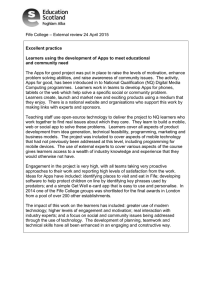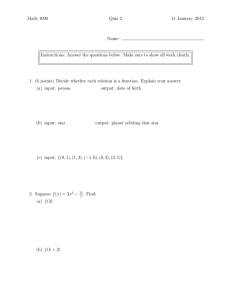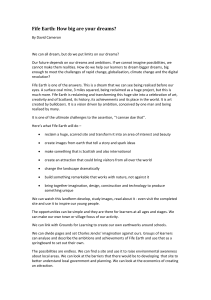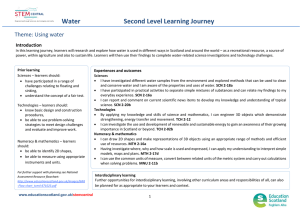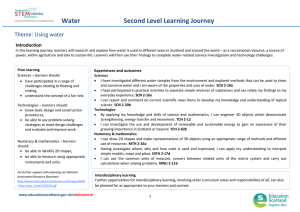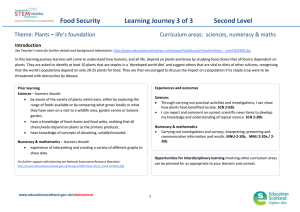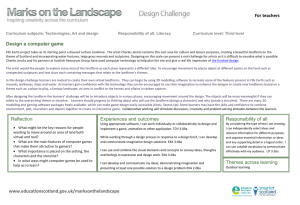Star Primary School has a roll of 37 pupils and... surrounding area. Inspectors noted the following features of the... Star Primary School, Fife Council
advertisement
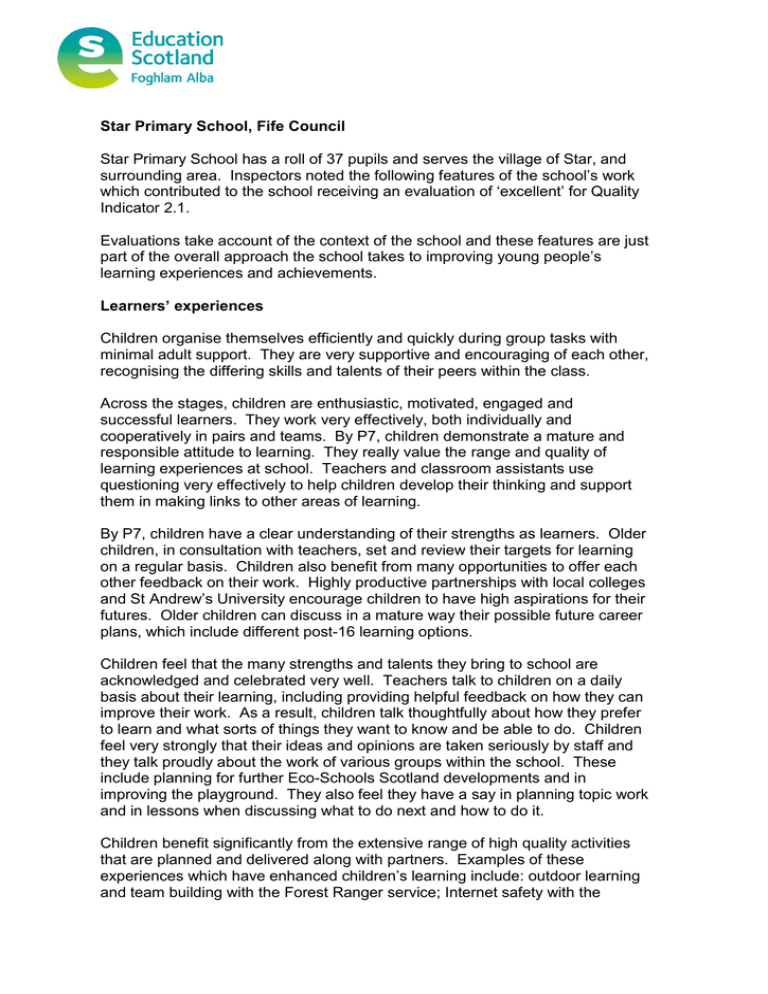
Star Primary School, Fife Council Star Primary School has a roll of 37 pupils and serves the village of Star, and surrounding area. Inspectors noted the following features of the school’s work which contributed to the school receiving an evaluation of ‘excellent’ for Quality Indicator 2.1. Evaluations take account of the context of the school and these features are just part of the overall approach the school takes to improving young people’s learning experiences and achievements. Learners’ experiences Children organise themselves efficiently and quickly during group tasks with minimal adult support. They are very supportive and encouraging of each other, recognising the differing skills and talents of their peers within the class. Across the stages, children are enthusiastic, motivated, engaged and successful learners. They work very effectively, both individually and cooperatively in pairs and teams. By P7, children demonstrate a mature and responsible attitude to learning. They really value the range and quality of learning experiences at school. Teachers and classroom assistants use questioning very effectively to help children develop their thinking and support them in making links to other areas of learning. By P7, children have a clear understanding of their strengths as learners. Older children, in consultation with teachers, set and review their targets for learning on a regular basis. Children also benefit from many opportunities to offer each other feedback on their work. Highly productive partnerships with local colleges and St Andrew’s University encourage children to have high aspirations for their futures. Older children can discuss in a mature way their possible future career plans, which include different post-16 learning options. Children feel that the many strengths and talents they bring to school are acknowledged and celebrated very well. Teachers talk to children on a daily basis about their learning, including providing helpful feedback on how they can improve their work. As a result, children talk thoughtfully about how they prefer to learn and what sorts of things they want to know and be able to do. Children feel very strongly that their ideas and opinions are taken seriously by staff and they talk proudly about the work of various groups within the school. These include planning for further Eco-Schools Scotland developments and in improving the playground. They also feel they have a say in planning topic work and in lessons when discussing what to do next and how to do it. Children benefit significantly from the extensive range of high quality activities that are planned and delivered along with partners. Examples of these experiences which have enhanced children’s learning include: outdoor learning and team building with the Forest Ranger service; Internet safety with the police; substance misuse and sexual health with the school nurse; food labelling with Fife Council environmental health officers. From the early stages, children benefit from a wide range of educational visits and from visitors to the school. P6 and P7 children benefit from a residential, outdoor learning experience each year, along with other schools in the cluster. At all stages, children use computers and interactive whiteboards very confidently to enhance their learning. For example, they use Excel independently to produce a range of charts and graphs to illustrate their learning. http://www.educationscotland.gov.uk/Images/HowgoodisourschoolJtEpart3_tcm 4-684258.pdf



